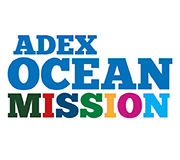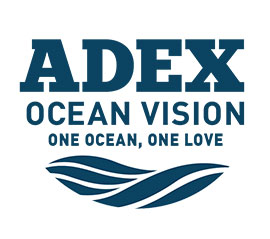Article extracted from Asian Diver Issue 02/2020 (155)
Some companies are turning the plastics crisis into an opportunity to create more sustainable alternatives to plastic and innovative ways to reuse or recycle plastic.
RENEWLOGY TECHNOLOGY
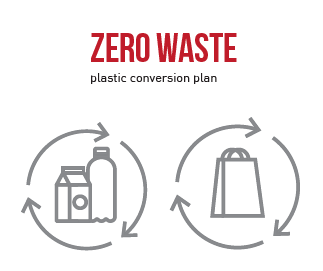 Born out of an MIT class project on electronic waste, Priyanka Bakaya was inspired by a summer trip working in India. She was inspired by the massive amounts of waste being dumped into the open environment and completely burned. The company focuses on areas of energy, oceans and zero-waste via a plastic conversion plan. In relation to the oceans, Renewology came out with a process that converts plastics into fuels called RenewOne. This operation can also produce fuels like diesel via a simple mobile interface. Apart from their main cause, the company also hosts cleanups where people can volunteer, sponsor and contribute in any way to mitigate the plastic problem.
Born out of an MIT class project on electronic waste, Priyanka Bakaya was inspired by a summer trip working in India. She was inspired by the massive amounts of waste being dumped into the open environment and completely burned. The company focuses on areas of energy, oceans and zero-waste via a plastic conversion plan. In relation to the oceans, Renewology came out with a process that converts plastics into fuels called RenewOne. This operation can also produce fuels like diesel via a simple mobile interface. Apart from their main cause, the company also hosts cleanups where people can volunteer, sponsor and contribute in any way to mitigate the plastic problem.
PARLEY FOR THE OCEANS
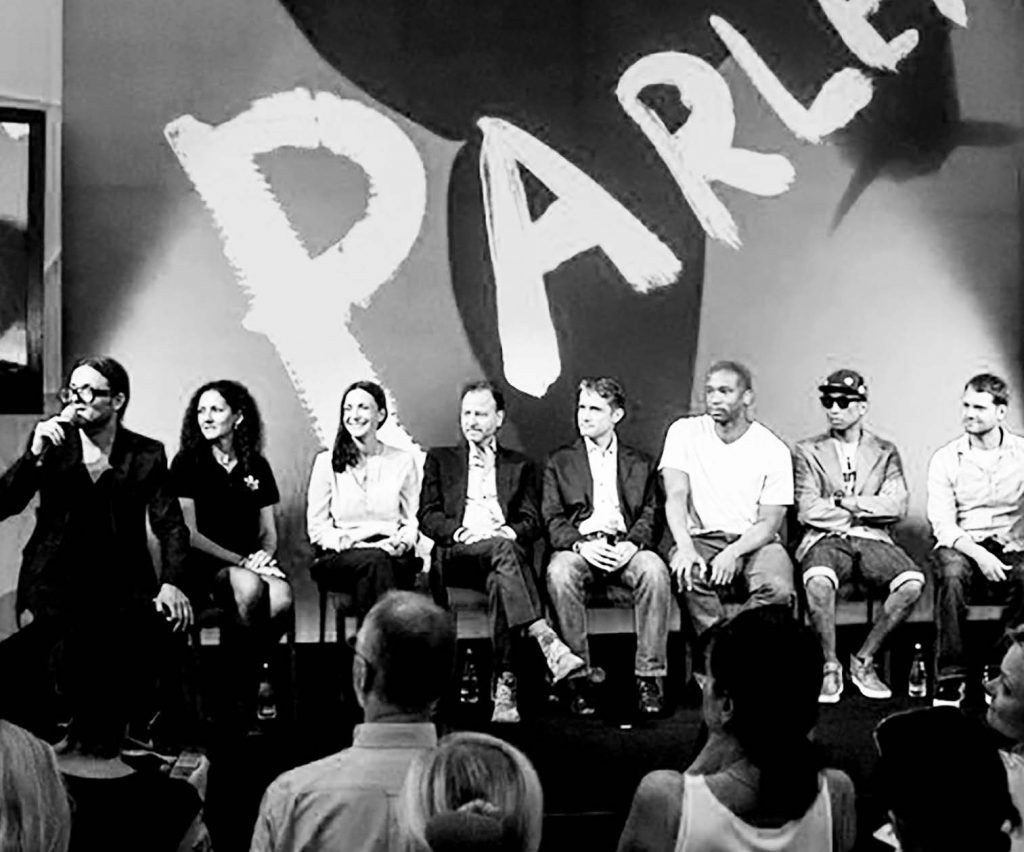 Parley AIR is the organisation’s strategy to curb the ever-evolving threat of marine plastic pollution. At Parley, they believe plastic to be a ‘design failure’, and that this design can only be altered by reinventing the material, plastic into a biodegradable and eco-friendly format. To initiate change, Parley works with brands and starts new projects looking to generate plastic in the right away, as well as use up-cycled marine plastic waste. Some of their collaborations and projects include the infamous Adidas X Parley for The Oceans marine plastic shoe collection, sustainable artworks with Katharina Grosse, various Ocean 2 Ocean episodes, world cleanup day, and the Parley Ocean School.
Parley AIR is the organisation’s strategy to curb the ever-evolving threat of marine plastic pollution. At Parley, they believe plastic to be a ‘design failure’, and that this design can only be altered by reinventing the material, plastic into a biodegradable and eco-friendly format. To initiate change, Parley works with brands and starts new projects looking to generate plastic in the right away, as well as use up-cycled marine plastic waste. Some of their collaborations and projects include the infamous Adidas X Parley for The Oceans marine plastic shoe collection, sustainable artworks with Katharina Grosse, various Ocean 2 Ocean episodes, world cleanup day, and the Parley Ocean School.
PLASTIC BANK

Founded in March 2013 by David Katz & Shaun Frankson, Plastic Bank’s vision is to stop ocean plastic by bringing together a billion people to monetise the waste and improve lives. The organisation looks to tackle this problem from its root in order to prevent plastics flowing into our oceans. So far, with more than 4300 collectors, they have helped recover over nine million kilograms of ocean-bound plastic. Their various programmes include activism, education, and hands-on work in areas such as Haiti, Indonesia, and the Philippines just to name a few.
CLEANBODIA

Another brand trying to provide innovative and sustainable solutions to their local people in Cleanbodia, where they offer biodegradable cassava (a root vegetable grown in SouthEast Asia) bags over traditional single-use plastic ones. Cassava reduces plastic usage and allows the bags to disintegrate in under five years,in any of the mediums of water, soil, or buried in garbage. These biodegradable bags are as strong as traditional plastic bags, and can hold up the same volume of product without losing form or breaking. As of now, Cleanbodia has partnered with over 180 local eco-businesses to promote their cassava bags.
DUNIA DESIGNS
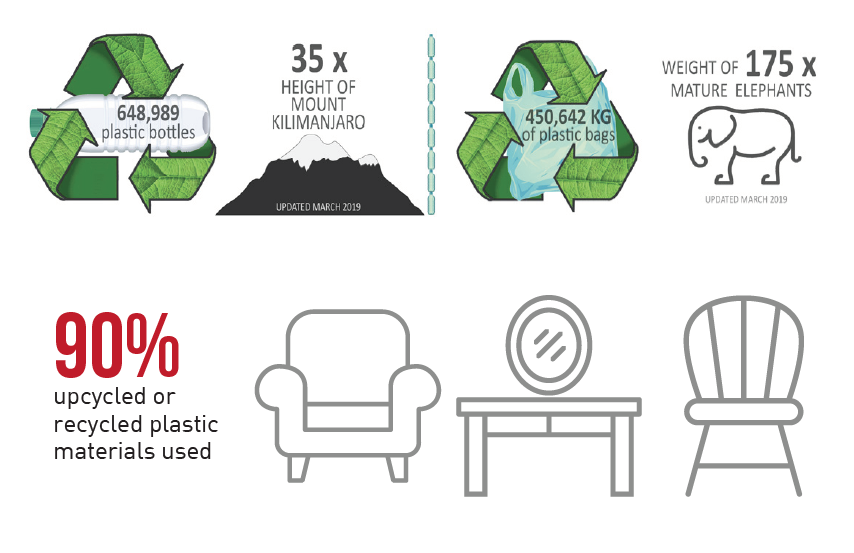 The sustainable design company specifically looks into recycling plastic waste to create unique & bespoke furniture, lifestyle accessories and more. All their designs, ranging from flooring & decking to interior furnishings and lifestyle items make use of 90% upcycled or recycled plastic materials. They have successfully used up to five trillion plastic bags a year, and are also focused on educating and training people on environmental issues, mainly collection, reuse and up-cycling of plastics.
The sustainable design company specifically looks into recycling plastic waste to create unique & bespoke furniture, lifestyle accessories and more. All their designs, ranging from flooring & decking to interior furnishings and lifestyle items make use of 90% upcycled or recycled plastic materials. They have successfully used up to five trillion plastic bags a year, and are also focused on educating and training people on environmental issues, mainly collection, reuse and up-cycling of plastics.
REPURPOSE
 As its name suggests, rePurpose looks at recycling, but in a much more conscious and focused way. There are several wealthy western countries with a lot of waste that send these amounts of poorer Asian countries that struggle to dispose of their own exceeding amounts of waste. From this, only about 26 percent of plastic is successfully recycled. The rest of the low-value plastic is then discarded into nature. rePurpose tries to ethically collect and recycle that low-value plastic, to tackle the problem of plastics being profitable enough to recycle. So far the brand has saved up to 51,000 kilograms of plastic from oceans and landfills. With 82 ambassadors in their ecosystem so far, rePurpose is trying to shift the circular capital in India and Asia into a favourable one.
As its name suggests, rePurpose looks at recycling, but in a much more conscious and focused way. There are several wealthy western countries with a lot of waste that send these amounts of poorer Asian countries that struggle to dispose of their own exceeding amounts of waste. From this, only about 26 percent of plastic is successfully recycled. The rest of the low-value plastic is then discarded into nature. rePurpose tries to ethically collect and recycle that low-value plastic, to tackle the problem of plastics being profitable enough to recycle. So far the brand has saved up to 51,000 kilograms of plastic from oceans and landfills. With 82 ambassadors in their ecosystem so far, rePurpose is trying to shift the circular capital in India and Asia into a favourable one.
TRSHBG
 In May, the unique initiative Trshbg was founded. Sophisticated trash bags that have been designed for wear during diving and surfing, the bags have been engineered for comfort and to store trash inside it, against strong currents waves. All bags are made of 80 percent recycled materials like old banners and inner tubes.
In May, the unique initiative Trshbg was founded. Sophisticated trash bags that have been designed for wear during diving and surfing, the bags have been engineered for comfort and to store trash inside it, against strong currents waves. All bags are made of 80 percent recycled materials like old banners and inner tubes.
SEVEN CLEAN SEAS
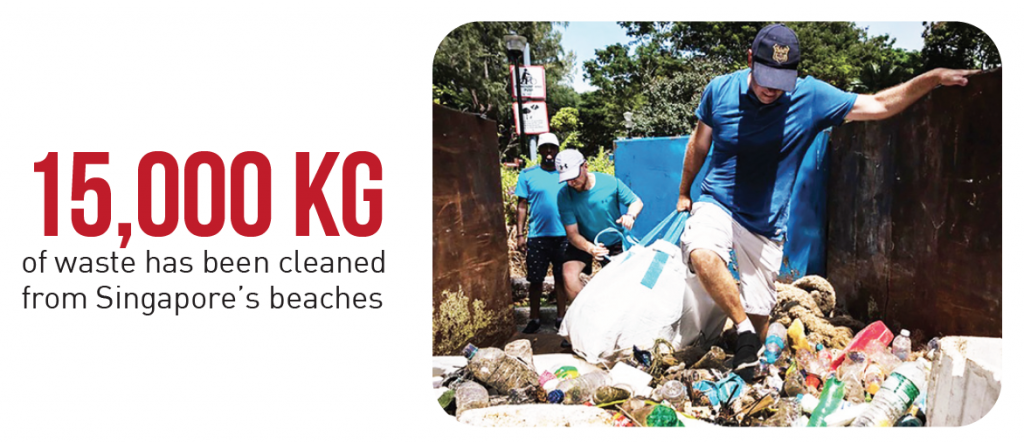 In July 2018, Tom Peacock-Nazil and his other half Pamela Corriea founded Seven Clean Seas on the basis of their love for seas and beaches. Both individuals have always collected plastic when on their own marine adventures. Eventually, the couple realised that if they created a movement and encouraged it, they could collate several like-minded people to help initiate change. To date, they have removed over 15,000 kilograms of waste from Singapore’s beaches. Their cleanups involve all members of the community, both young and old.
In July 2018, Tom Peacock-Nazil and his other half Pamela Corriea founded Seven Clean Seas on the basis of their love for seas and beaches. Both individuals have always collected plastic when on their own marine adventures. Eventually, the couple realised that if they created a movement and encouraged it, they could collate several like-minded people to help initiate change. To date, they have removed over 15,000 kilograms of waste from Singapore’s beaches. Their cleanups involve all members of the community, both young and old.
THE GREAT BUBBLE BARRIER
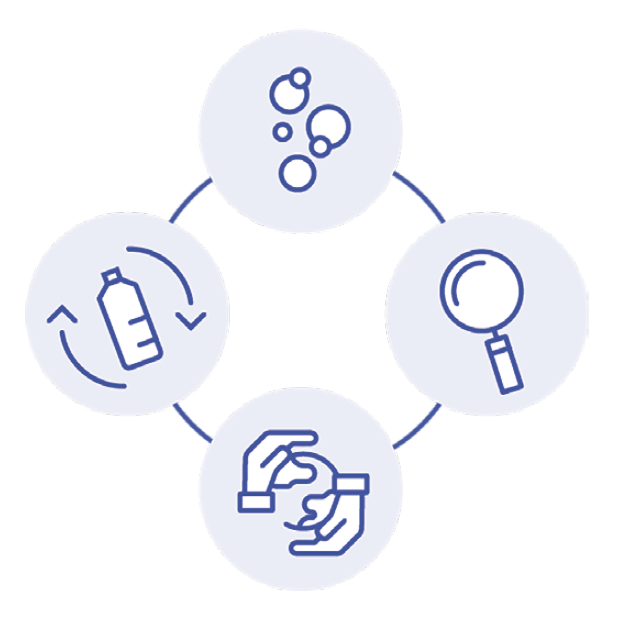 The Bubble Barrier is the first invention of its kind where a bubble screen is responsible for removing plastic from the water in the Amsterdam canals. This process stops canal plastic from flowing into the North Sea. Amsterdam is the first city in the world to fight against plastic pollution in this manner.
The Bubble Barrier is the first invention of its kind where a bubble screen is responsible for removing plastic from the water in the Amsterdam canals. This process stops canal plastic from flowing into the North Sea. Amsterdam is the first city in the world to fight against plastic pollution in this manner.
4OCEAN
Founded in Boca Raton, Florida, 4ocean is a for-profit company selling bracelets made mainly from recycled materials. They also sell other merchandise generated from environmentally responsible sources. The enterprise was established by Alex Schulze and Andrew Cooper on a trip to Indonesia, inspired by watching fishermen going through heaps of plastic in the ocean to move their boats to open waters.
AYA CUP
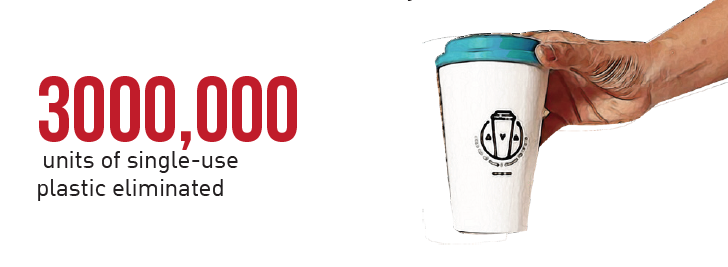 Focusing on reusable cups, AYA made its debut in the Epizode 2019 music festival in South East Asia where they eliminated 300,000 single-use plastic cups. Founder Linh Le and her team created a unique return and hold system for customers to reserve or dispose of their cups responsibly such that there was less waste produced. Their goal was to get rid of one million plastic cups by 2019 and educate Vietnam to solve the plastic problem in a creative and sustainable way.
Focusing on reusable cups, AYA made its debut in the Epizode 2019 music festival in South East Asia where they eliminated 300,000 single-use plastic cups. Founder Linh Le and her team created a unique return and hold system for customers to reserve or dispose of their cups responsibly such that there was less waste produced. Their goal was to get rid of one million plastic cups by 2019 and educate Vietnam to solve the plastic problem in a creative and sustainable way.
NEWOIL TECHNOLOGY
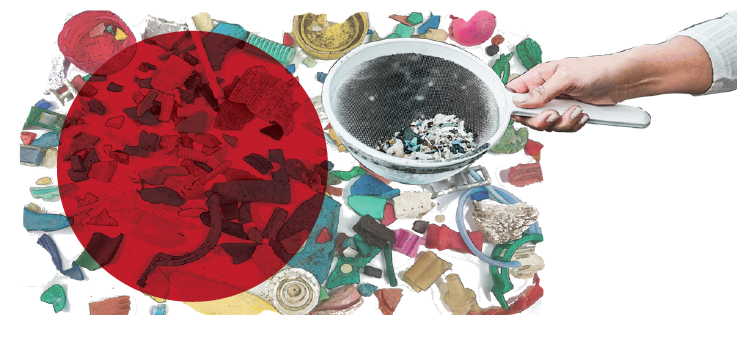
Following the creation of Newater and Newsand, Newoil is Singapore’s next big project. The project aims to create potential replacement for fossil fuels by converting plastic waste into a form of pyrolysis oil. The country needs to strengthen its chemical recycling industry, and introduce a plant that helps “anchor the chemical recycling value chain” within the next few years, as stated by Senior Minister of State for the Environment and Water Resources, Amy Khor in Parliament on March 4.
Like this post? Share us on social media and stay tuned for more exciting content!
